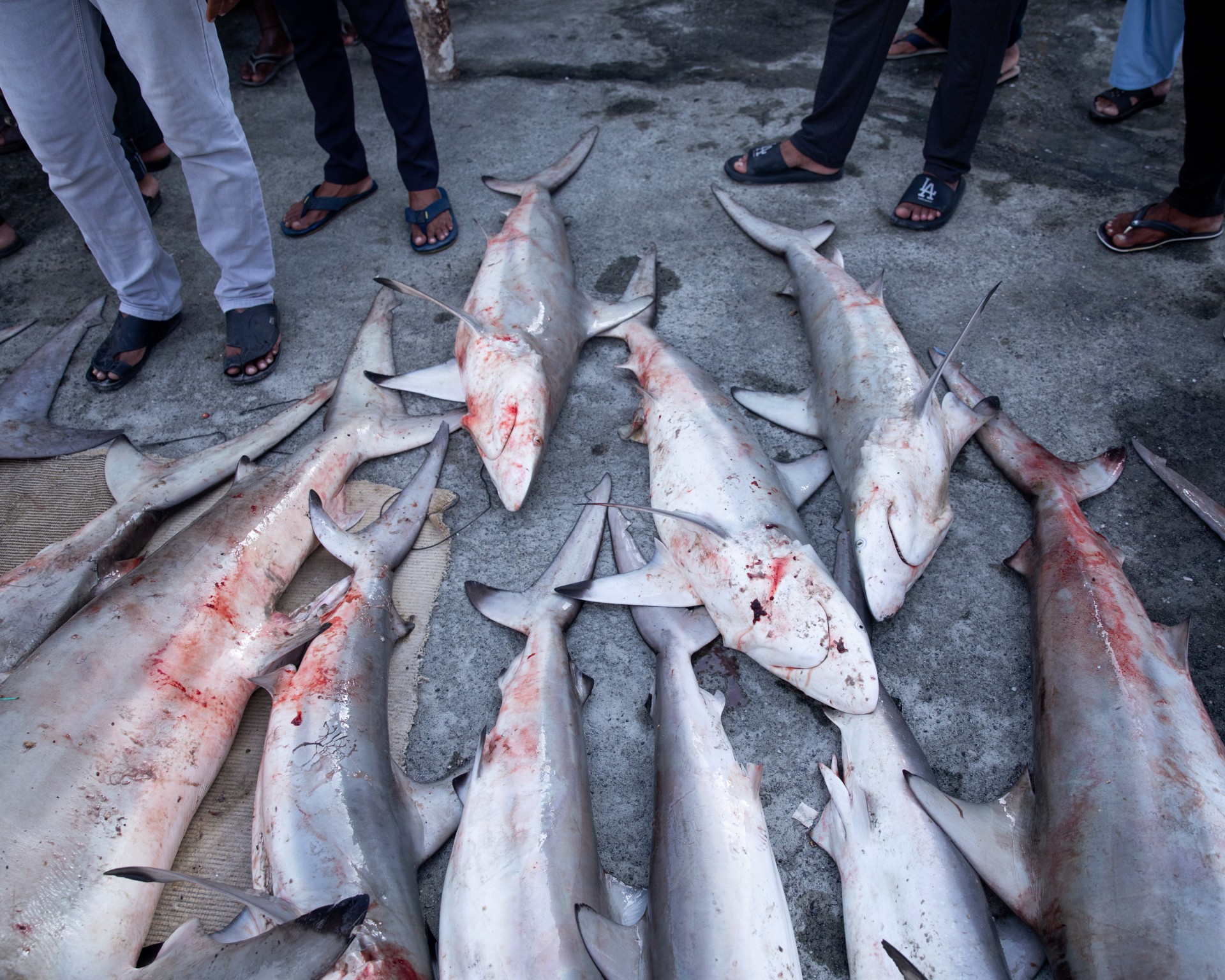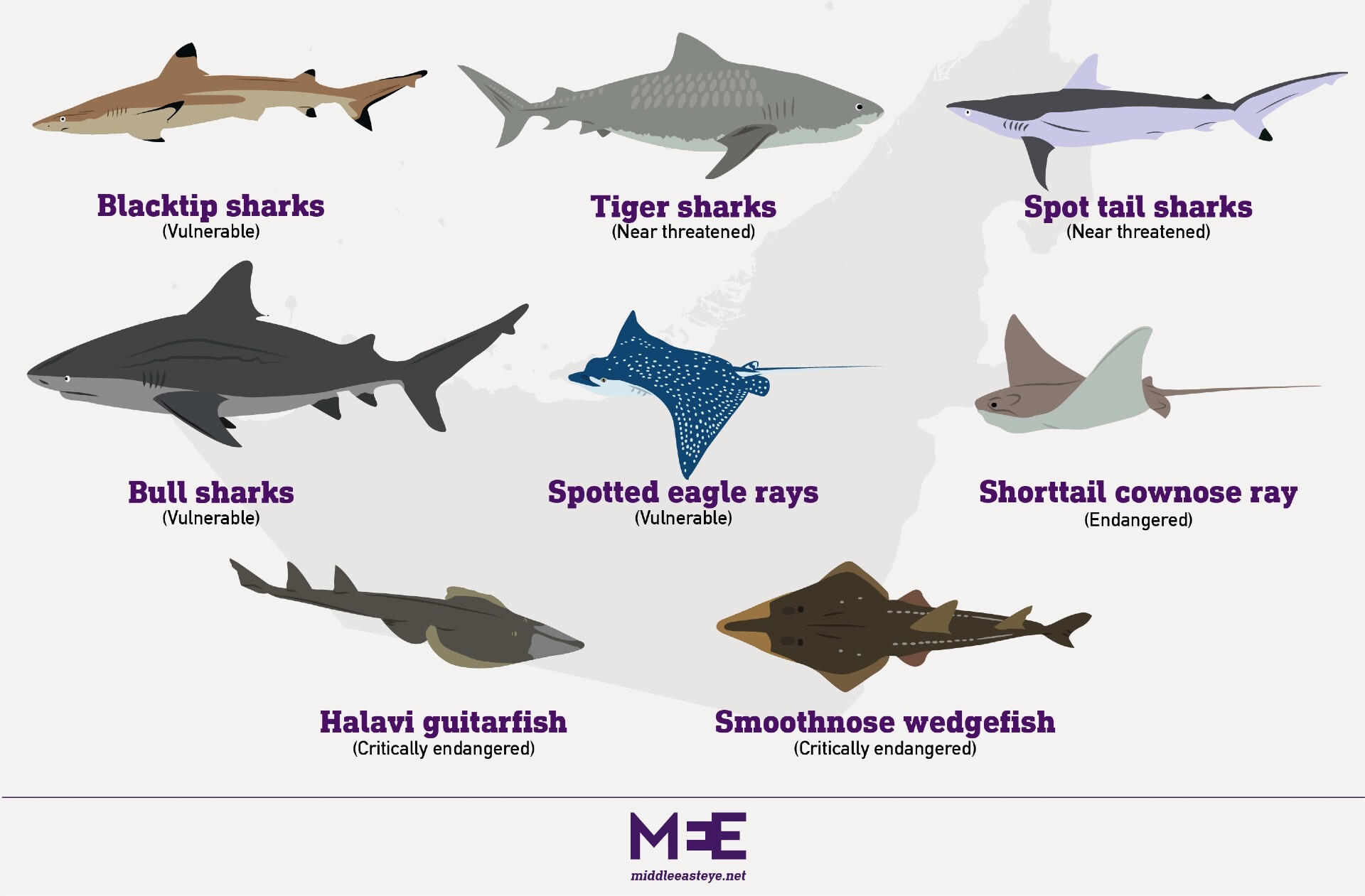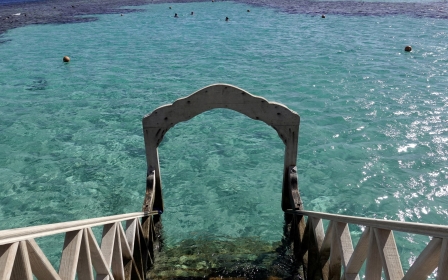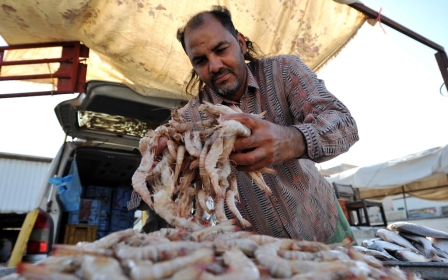The UAE has banned fishing of rare sharks and rays. So why are they appearing in markets?
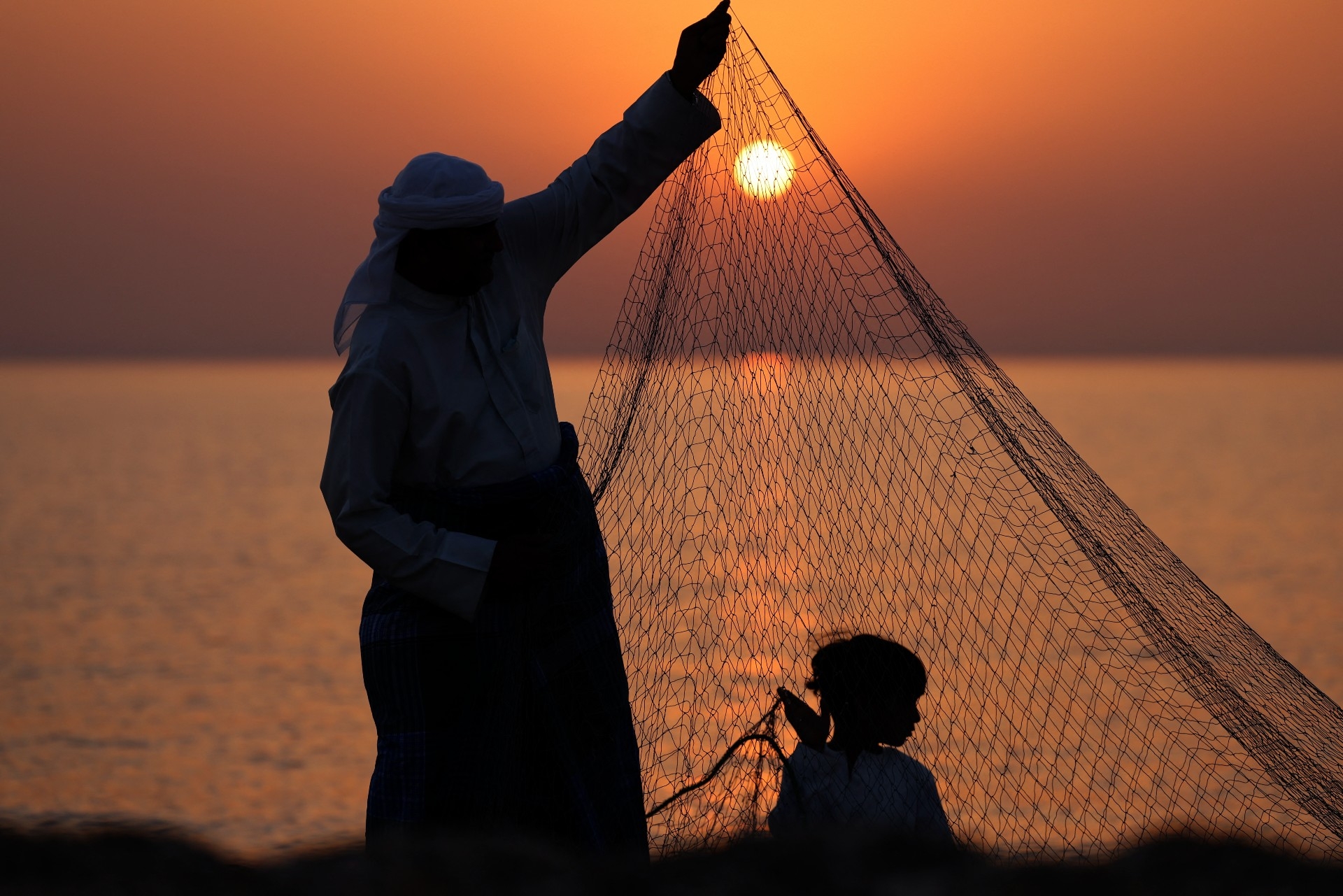
A small crowd forms by a large wooden dhow docked at the Sharjah fish market, as half-a-dozen fishermen hoist up shark carcasses from the hull of the boat. One fisherman hooks them by the gills and throws them on deck, while another washes their bloodied bodies to prepare them for auction.
For fish traders and curious onlookers, it's a captivating sight that signals the beginning of a competitive sale. Sharks like these can catch hefty prices.
Yet within the pile are two unusual species. Their elongated brown bodies, flattened heads and ray-like fins reveal them as wedgefish, one of the world's most threatened marine species and illegal to catch in the United Arab Emirates.
The recorded scene was uploaded on YouTube in January this year and is part of a wider collection of footage documenting sharks and rays being illegally fished across the UAE despite a permanent federal ban.
Footage reveals illegal fishing
New MEE newsletter: Jerusalem Dispatch
Sign up to get the latest insights and analysis on Israel-Palestine, alongside Turkey Unpacked and other MEE newsletters
Middle East Eye visited shark auctions and sourced videos uploaded on YouTube between 2018 and 2022 of fish markets across the UAE. Dozens of critically endangered species that are prohibited from being fished in Emirati waters are shown being landed in ports in at least four videos.
Shark researchers, both within the UAE and abroad, were asked to identify the species. They observed at least eight different shark and ray species whose conservation status ranged from near threatened to vulnerable or endangered and critically endangered, according to the Red List of Threatened Species maintained by the International Union for Conservation of Nature (IUCN).
Additionally, data from shark fin seizures in Hong Kong reveal two more critically endangered shark species being imported into the territory from the UAE between 2017 and 2019.
"Sharks are targeted across all spectrums of conservation status. For fishermen, as soon as there's a shark on their line, regardless of whether they are endangered, they will keep it in almost all instances," said Riaan van der Merwe, assistant professor at Abu Dhabi's Khalifa University.
The waters of the Gulf are home to 32 shark species and 25 ray species. Of those, two out of five species are classified as endangered by the IUCN. As a marine resource, sharks are key to maintaining healthy ocean ecosystems, yet many shark species continue to be fished to near extinction.
According to van der Merwe, a lack of proper law enforcement is impeding shark fisheries management and conservation efforts despite their ecological importance.
Largely unmonitored
Over the past eight years, the UAE has implemented tighter laws to regulate the trading and fishing of sharks.
Shark meat is locally consumed, and while many species are legal to capture and sell, federal legislation has expanded to protect the exploitation of certain shark and ray species, including a seasonal ban on shark fishing during breeding seasons.
In 2019, the UAE permanently banned fishing 59 shark and ray species. Any catch of the species must be released back into the sea or handed to local authorities. Otherwise, punishments can range from fines to confiscation of fishing licences.
Despite this, the fishery still remains largely unmonitored and regulations remain fragmented across most of the seven Emirates, said van der Merwe.
"I don't want to blame the regulator because the regulation is clear. But hardly anyone at the landing sites is taking any sort of evidence on the types of sharks that have been landed and caught in UAE waters," he said.
The UAE Ministry of Climate Change and Environment said the species caught were most likely as a result of bycatch, and denied the videos showed wedgefish or guitarfish being auctioned.
Critically endangered species
Among the prohibited species allegedly identified at fish markets are the smoothnose wedgefish and halavi guitarfish, both local to UAE waters. Collectively, wedgefish and guitarfish are known as "rhino rays" and were at one point the world's most threatened marine fish due to extreme overfishing.
Populations have plummeted due to a large demand for their meat and fins, which are highly valued for soup. Currently, nine out of 10 species of wedgefish and all six species of guitarfish are officially listed as critically endangered.
Though they have been banned from being fished in the UAE since 2019, videos show their presence at markets.
The sight of a busy evening auction in Ajman, as seen in one video uploaded in January 2020, documents two guitarfish for sale on a large plastic table. More are piled nearby on the market floor. At the edge of the landing dock are two wedgefish, surrounded by fish buyers.
When visiting the Ajman fish market in April, fishermen and traders confirmed that rhino rays are prized possessions. One fish trader told MEE that a dried wedgefish fin could bring 750 dirhams ($204). "They are the most expensive ones," he said.
Aaron Henderson, associate professor at UAE University researching the biology and ecology of sharks, skates and rays, said it is expected for fishermen and traders to get excited about catching the species.
"Fins from particular species are more valuable than others. Unfortunately, wedgefish and guitarfish are particularly sought after. With wedgefish, their populations are in a really bad condition at the moment and it's probably due to this," he said.
Threats to exploited species can extend beyond local demand. The UAE is seen as an export hub of shark fins to Hong Kong and elsewhere in China, with a large proportion of traded fins coming from species at high risk of global extinction.
Data provided by the Hong Kong department of agriculture, fisheries and conservation show that five shark fin seizures originating from the UAE between 2017 and 2019 involved oceanic whitetip sharks and hammerhead sharks, both critically endangered species and prohibited from commercial trade without a permit.
Hammerhead sharks are the most affected shark species along the Arabian coastline, said Dareen Almoji, a postdoctoral associate at New York University in Abu Dhabi, whose research details an 80 percent decline in abundance.
It's difficult to instill the value of shark conservation to some fishermen who view the trade as opportunistic, she said, especially when they know the price they could fetch from them.
Van der Merwe said: "A fisherman that's on the boat from Ajman, for example, is doing that purely for monetary value, to feed his family and to get a few dirhams in his pocket. Those types of fishermen need alternatives, and it's an important component of legislation to make sure that we help those in the trade."
More enforcement and protection needed
Henderson echoed similar sentiments. While UAE federal law is strong, it is not always strictly adhered to, he said. Part of the challenge with enforcement is that species are hard to identify.
"Somebody working in a port who's just looking at carcasses may find it difficult to identify them correctly," he said.
Another is the lack of data on what is being landed, how many and from where.
"That is information that we simply don't have throughout the Middle East. For anyone to talk about sustainable fisheries in the region, they're really just throwing that word around without it having any real meaning."
Middle East Eye delivers independent and unrivalled coverage and analysis of the Middle East, North Africa and beyond. To learn more about republishing this content and the associated fees, please fill out this form. More about MEE can be found here.


